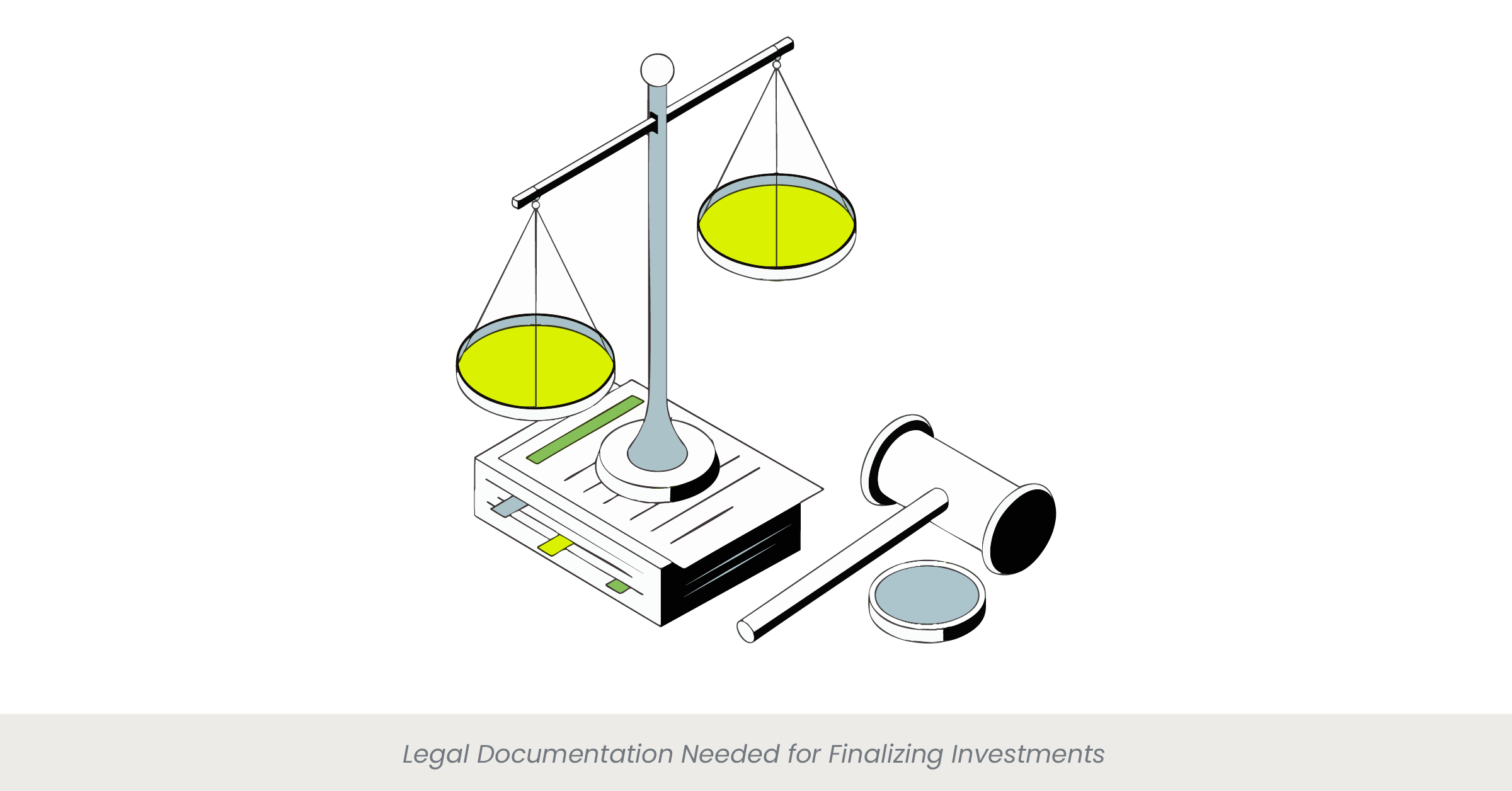
Understanding Intellectual Property Concerns When Sharing Business Ideas

Introduction to Intellectual Property Concerns
Intellectual property (IP) concerns are paramount when sharing business ideas, especially during pitch presentations. As entrepreneurs seek funding and support, they often disclose unique concepts and innovations to potential investors. However, revealing proprietary information without adequate protections can lead to significant risks, including the theft of ideas or dilution of competitive advantage. Understanding the nuances of intellectual property rights is crucial in ensuring that entrepreneurs safeguard their innovations while effectively communicating their business value.
Background on Intellectual Property
Intellectual property encompasses a range of legal rights that protect creations of the mind, such as inventions, literary and artistic works, designs, symbols, names, and images used in commerce. There are several types of IP, including patents, trademarks, copyrights, and trade secrets. Each type serves a specific purpose, and the choice of which to pursue depends on the nature of the business idea being pitched. For example, a startup with a groundbreaking technology may seek a patent to prevent others from making, using, or selling the invention without permission. Historically, the importance of IP has grown in tandem with the rise of innovation-driven economies, making it essential for businesses to recognize their rights and obligations in protecting their intellectual assets.
Real-World Applications and Examples
Many successful companies have navigated the complexities of intellectual property when presenting their business ideas. For instance, in the technology sector, numerous startups rely on well-crafted pitch decks that highlight their unique selling propositions while ensuring their IP is adequately protected. A notable example is the biotech industry, where companies often present their innovative solutions alongside clinical trial results while safeguarding sensitive information through non-disclosure agreements (NDAs) and securing patents. This strategic approach not only enhances investor confidence but also fosters trust by demonstrating a commitment to ethical considerations in pitching.
Supporting Statistics and References
Research shows that businesses that actively protect their intellectual property are more likely to secure funding and achieve long-term success. According to the World Intellectual Property Organization (WIPO), companies that effectively manage their IP assets can increase their market valuation significantly. Furthermore, a study conducted by the European Patent Office revealed that startups with patents are 50% more likely to attract investment compared to those without existing patents. This underscores the importance of legal considerations in pitching, particularly when entrepreneurs share their innovative ideas with potential investors.
Compliance with Securities Law During Fundraising

Introduction to Securities Law Compliance
Compliance with securities law is a critical aspect of fundraising, particularly for startups and businesses seeking investment. Securities laws are designed to protect investors by ensuring that they receive accurate and complete information about the investments they are considering. When pitching to potential investors, businesses must navigate a complex landscape of regulations that govern the offering of securities, which includes stocks, bonds, and other investment instruments. Understanding these laws is not only essential for legal compliance but also for fostering trust and credibility with investors.
Background on Securities Law
Securities law encompasses a set of regulations that govern the issuance, buying, and selling of investment securities. In the United States, the Securities and Exchange Commission (SEC) is the primary regulatory body overseeing these activities. Companies must comply with both federal and state securities laws, which include registration requirements and disclosure obligations. Historically, these laws have evolved to address the challenges posed by new investment vehicles and fundraising methods, including crowdfunding. As more businesses explore innovative fundraising approaches, a solid understanding of securities law is crucial to avoid legal pitfalls that could jeopardize their funding efforts.
Real-World Applications and Examples
For instance, a startup planning to raise funds through a crowdfunding campaign must ensure compliance with the Jumpstart Our Business Startups (JOBS) Act, which allows companies to offer and sell securities to the general public through online platforms. This act outlines specific rules regarding the maximum amount that can be raised and mandates disclosures about the business and its financials. Companies like BrewDog, a craft beer brand, successfully utilized crowdfunding to raise significant capital while adhering to the legal requirements set forth by securities law. By maintaining transparency and following the established guidelines, they gained investor confidence and built a loyal customer base.
Supporting Statistics and References
Data from the SEC indicates that companies that comply with securities laws experience a higher success rate in securing funding. For example, according to a report from Crowdfunding Insight, campaigns that adhere to regulatory standards are 60% more likely to meet their funding goals. Moreover, a study by the National Bureau of Economic Research (NBER) highlighted that startups that accurately disclose their business risks and financial conditions are viewed more favorably by investors. This demonstrates that legal considerations in pitching are not merely regulatory hurdles but vital components in building investor relations and securing funding.
Ethical Considerations in Disclosing Business Risks to Investors

Introduction to Ethical Risk Disclosure
In the world of pitching and investor relations, ethical considerations in disclosing business risks are paramount. When seeking funding, it is essential for entrepreneurs to communicate potential risks transparently to investors. This ethical responsibility goes beyond mere compliance; it is about building trust and establishing a foundation for long-term relationships. By candidly discussing risks associated with a business, entrepreneurs not only demonstrate integrity but also empower investors to make informed decisions. This section delves into the importance of ethical risk disclosure, the potential consequences of withholding information, and best practices for communicating risks effectively.
Understanding the Ethical Implications
Disclosing business risks to investors is not just a legal requirement; it is an ethical and moral obligation too. The failure to disclose significant risks can lead to severe repercussions, including legal liabilities and damage to reputation. Ethical considerations dictate that businesses must evaluate the potential impact of risks, such as market fluctuations, regulatory changes, and operational challenges. Historical cases, such as the Enron scandal, illustrate the devastating consequences of withholding critical information from investors. Ethical communication of risks fosters transparency, enhances credibility, and helps mitigate potential misunderstandings with investors.
Real-World Examples of Ethical Risk Disclosure
A prime example of ethical risk disclosure can be seen in the tech startup sector. Companies like Uber and Airbnb have been open about regulatory challenges and market competition in their pitches. For instance, during fundraising rounds, Airbnb transparently discussed the risks related to regulatory scrutiny and local laws affecting their business model. By addressing these concerns head-on, they reassured potential investors of their commitment to ethical practices while simultaneously demonstrating their preparedness to navigate such serious challenges ahead. This approach not only helped them secure funding but also established them as responsible corporate entities.
Supporting Evidence and Statistics
Research from the CFA Institute reveals that ethical risk disclosure significantly affects investor confidence. According to a study, companies that consistently disclose their business risks are 70% more likely to attract long-term investors compared to those that do not. Furthermore, the Corporate Governance Institute highlights that businesses that prioritize ethical communication experience lower volatility in their stock prices, indicating a stable relationship with investors. Such statistics underscore the critical role ethical considerations in pitching play in building strong investor relations and achieving sustainable funding success.
The Importance of Accurate and Honest Financial Reporting

Introduction to Financial Reporting Ethics
Accurate and honest financial reporting is a cornerstone of ethical considerations in pitching and investor relations. When entrepreneurs seek investment, they present financial data that reflects their business's health and potential for growth. Ethical financial reporting not only builds trust with investors but also fulfills legal obligations. Investors rely heavily on this information to make informed decisions, and any misrepresentation can lead to severe consequences, including loss of credibility, legal penalties, and financial ruin. This section explores the significance of ethical financial reporting, the risks of inaccuracies, and the potential benefits of maintaining high standards of financial integrity.
Background on Financial Reporting Standards
Financial reporting is governed by various standards and regulations designed to ensure accuracy and transparency. The Generally Accepted Accounting Principles (GAAP) and International Financial Reporting Standards (IFRS) are frameworks that guide companies in preparing their financial statements. These frameworks emphasize the importance of honesty and clarity in financial reporting, holding businesses accountable for their representations. Historically, scandals such as those involving Lehman Brothers and WorldCom highlight the devastating effects of unethical financial practices, reinforcing the necessity for accuracy in financial disclosures.
Case Studies Demonstrating the Importance of Honest Reporting
A noteworthy example of the importance of ethical financial reporting is the case of the pharmaceutical company Theranos. Initially, the company attracted significant investments based on optimistic financial projections and claims about their technology. However, as investigations unveiled inaccuracies in their reporting and deceptive practices, investor trust was eroded, leading to legal battles and a collapse in the company's value. Conversely, companies like Microsoft and Apple are often cited for their transparency and adherence to ethical standards in financial reporting. Their consistent practice of providing clear and accurate financial statements has contributed to their sustained investor confidence and market leadership.
Validating the Importance of Financial Ethics
According to a report by the Financial Reporting Council, 90% of investors consider transparency in financial reporting to be crucial when deciding to invest. Furthermore, research published by the Journal of Business Ethics indicates that companies committed to ethical financial practices see a 15% increase in investor satisfaction. These statistics illustrate the direct correlation between ethical financial reporting and successful investor relations, underscoring the imperative for entrepreneurs to prioritize accuracy and honesty in their financial disclosures.
Navigating Confidentiality Agreements with Potential Investors

Understanding Confidentiality Agreements
Navigating confidentiality agreements is an essential part of legal considerations in pitching and investor relations. These agreements, often referred to as Non-Disclosure Agreements (NDAs), serve to protect sensitive information shared during discussions between entrepreneurs and potential investors. Such documents ensure that proprietary data, business strategies, and intellectual property remain confidential, allowing startups to present their ideas without the fear of intellectual theft or competition. Understanding the nuances of these agreements is crucial for entrepreneurs looking to secure funding while safeguarding their innovative concepts.
The Role of Non-Disclosure Agreements (NDAs)
Confidentiality agreements have become increasingly common in the high-stakes world of fundraising and investment. An NDA outlines the terms under which confidential information is disclosed, detailing what constitutes confidential material, the duration of the agreement, and the obligations of the parties involved non disclosure agreement. Historically, NDAs have provided a legal framework that fosters open communication between startups and investors, creating a safe space for the sharing of innovative ideas. However, startups must carefully craft these agreements to avoid potential pitfalls, such as overly broad clauses that could hinder future business operations or unwittingly restrict their ability to engage with other potential partners.
Real-World Applications of Confidentiality Agreements
A notable example of effective use of NDAs is in the tech industry, where startups often possess cutting-edge technology that could be easily replicated. For instance, a startup developing an innovative software solution may require potential investors to sign an NDA before providing access to its pitch deck, which details its unique algorithms and business strategies. This practice not only protects the startup’s intellectual property but also instills confidence in investors who understand that their discussions are protected. On the contrary, failing to secure an NDA can lead to severe repercussions, as seen in the case of a small biotech firm that shared proprietary research without an NDA, only to find their concept copied by a larger competitor.
Statistical Insights on the Importance of Confidentiality
A survey conducted by the National Venture Capital Association revealed that 76% of investors consider confidentiality agreements essential when evaluating potential investment opportunities. Moreover, research from the Small Business Administration indicates that startups that use NDAs are 35% more likely to secure funding compared to those that do not. These findings highlight the critical role confidentiality agreements play in fostering trust and facilitating open dialogue between entrepreneurs and investors, reinforcing the need for startups to navigate these agreements carefully and ethically.
Legal Implications of Investor Commitments and Term Sheets

Overview of Investor Commitments and Term Sheets
Investor commitments and term sheets form the backbone of the legal framework in startup funding. A term sheet outlines the preliminary terms and conditions between an investor and a company seeking investment. It includes vital elements such as the amount to be invested, equity distribution, and governance rights. Investor commitments, on the other hand, are formal agreements where investors pledge their capital to a startup based on the terms agreed in the term sheet. Understanding the legal implications of these documents is critical, as they establish the foundation for future business relationships and protect both parties from potential disputes.
Key Components and Legal Aspects of Term Sheets
Historically, term sheets have served as non-binding agreements, providing a roadmap for the final investment agreement. However, certain provisions, like confidentiality clauses and exclusivity periods, can carry legal weight. These documents typically address major components such as valuation, liquidation preferences, board structure, and investor rights. Entrepreneurs must also consider the legal implications of investor commitments, as these can include binding promises to inject capital over a set period, as well as requirements for milestone achievements. The details within the term sheet often determine how much control investors will have over the company, so it’s essential to navigate these negotiations carefully.
Real-World Examples of Investor Commitments and Term Sheets
In practice, term sheets have played a crucial role in shaping startup ecosystems. For example, during the early investment rounds of companies like Airbnb, the founders and investors negotiated detailed term sheets that defined control over key decisions, such as future funding rounds and potential exits. Another case is that of Theranos, where lack of transparency and inadequate legal oversight of investor commitments led to significant legal battles, resulting in investor lawsuits. These instances underscore the importance of crafting clear, legally sound term sheets that protect both the startup and the investors, while setting realistic expectations about the investment relationship.
Industry Data and Legal Insights on Term Sheets
According to a 2022 survey by PitchBook, approximately 85% of startups that received early-stage funding had term sheets that included detailed investor protection clauses. Additionally, research from Harvard Law School suggests that startups with well-structured term sheets are 40% less likely to face legal disputes during subsequent funding rounds. These statistics emphasize the importance of understanding the legal implications of investor commitments and term sheets, as they significantly impact a startup’s financial trajectory and long-term viability in competitive markets.
Ethical Fundraising Practices in Different Markets

Understanding Ethical Fundraising Practices
In today's interconnected world, ethical fundraising practices are more important than ever. As companies seek to secure funding, they must navigate a complex landscape that varies across different markets and cultures. Ethical considerations in fundraising encompass honesty, transparency, and respect for stakeholders, ensuring that the methods used to acquire funds do not compromise the integrity of the business or its relationships. Organizations must be aware of local regulations, cultural norms, and the expectations of potential investors, which can greatly influence the ethical landscape of fundraising efforts.
Background on Ethical Fundraising Norms
Historically, fundraising practices have been scrutinized for ethical implications, especially in the context of venture capital and crowdfunding. For example, the rise of crowdfunding platforms has introduced new ethical dilemmas, such as the risk of misleading backers about project viability or the true use of funds. In many markets, regulations like the Securities Act in the U.S. require full disclosure of risks, while international standards, such as the OECD Guidelines, emphasize the importance of fair dealings. Adhering to these standards not only fosters trust but also encourages a culture of accountability among startups and investors alike.
Case Studies Highlighting Ethical Fundraising
Real-world examples illustrate the significance of ethical fundraising practices. In the tech startup sector, companies like Kickstarter have established strict guidelines to promote ethical communication and transparency in fundraising campaigns. Conversely, several high-profile cases, such as the WeWork debacle, highlight the potential fallout from unethical practices, where misleading valuations and ambiguous financial disclosures led to significant investor losses and reputational damage. These instances demonstrate that adopting ethical fundraising practices can protect not only the investors but also the long-term success of the startups involved.
Statistics and Research on Ethical Fundraising
Research conducted by the Ethical Fundraising Network indicates that startups adhering to ethical fundraising practices experience a 30% increase in investor confidence, which translates into higher funding amounts. Additionally, a survey by the International Finance Corporation (IFC) found that companies practicing ethical fundraising are 50% more likely to attract repeat investments. These findings emphasize that ethical considerations in pitching and fundraising are not merely a regulatory requirement but a strategic advantage that can significantly impact a startup's growth and sustainability in a competitive marketplace.
Avoiding Potential Conflicts of Interest in Negotiations

Introduction to Conflicts of Interest
Navigating negotiations in business often requires a keen awareness of potential conflicts of interest. Such conflicts arise when personal interests or relationships interfere with the professional obligations of individuals involved in a negotiation process. In the context of pitching to investors, it is crucial to maintain transparency and ensure that all parties are aware of any relationships or interests that could bias the negotiation. Understanding these dynamics is essential for ethical considerations in pitching, as conflicts of interest can undermine trust and hinder the successful outcome of funding discussions.
Background on Conflicts of Interest
Conflicts of interest can take various forms, from financial incentives to personal relationships that might sway decision-making. In many instances, these conflicts can lead to ethical dilemmas, especially when individuals fail to disclose pertinent information. For example, if a company founder has a financial stake in a supplier, it may raise questions about the fairness of the negotiation if that supplier is chosen over potentially more suitable options. Regulations, such as those enforced by the Securities and Exchange Commission (SEC) in the U.S., mandate disclosure of any potential conflicts, emphasizing the need for ethical communication throughout the negotiation process.
Illustrative Examples of Navigating Conflicts
Real-world cases demonstrate the significance of addressing conflicts of interest effectively. For instance, a venture capital firm may have multiple portfolio companies in the same sector, leading to competing interests. In one notable case, a venture capitalist had to recuse themselves from negotiations involving two competing startups, ensuring that their decisions remained impartial. This approach not only preserved the integrity of the negotiation but also maintained trust among all parties involved. Additionally, ethical considerations in pitching can be enhanced by adopting practices like third-party mediation, which can help navigate conflicts and ensure fair negotiations.
Supporting Statistics and Research
According to a study published by Harvard Business Review, companies that actively manage and disclose conflicts of interest are 60% more likely to achieve favorable negotiation outcomes. Furthermore, data from the Corporate Governance Institute highlights that organizations with clear policies on conflict management experience a 40% reduction in disputes during negotiations. These statistics underline the importance of addressing potential conflicts of interest in negotiations and the broader implications for investor relations and long-term business success.
Preparing for Due Diligence Processes Post-Pitch

Understanding the Due Diligence Process
The due diligence process is a critical phase in the investment lifecycle, occurring after a pitch but before any formal agreement is reached. This phase involves a thorough investigation and evaluation of a business to validate claims made during the pitch, ensuring that potential investors are fully informed about the risks and opportunities associated with their investment. A comprehensive understanding of legal and ethical considerations in pitching is vital here, as both parties aim to establish trust and transparency. This process not only protects investors but also helps founders identify any potential issues that could arise in future dealings.
Historical Context of Due Diligence
The term "due diligence" has its roots in the legal field, referring to the obligation of parties to investigate and evaluate their counterparts before entering into agreements. In the context of business, this term gained prominence in the 1930s with the introduction of securities regulations, which emphasized the necessity of providing accurate and honest information to investors. Over the years, the due diligence process has evolved into a structured evaluation involving financial audits, market analysis, and reviews of legal compliance. The importance of due diligence is magnified in sectors like venture capital and private equity, where the stakes are high and the need for ethical communication is paramount.
Real-World Examples of Due Diligence
Consider the case of a tech startup seeking funding from venture capitalists. During the due diligence phase, the investors conducted an in-depth analysis of the startup’s financial records, product viability, and market position. This process revealed discrepancies in the startup’s revenue projections and highlighted potential intellectual property issues, ultimately leading to a more cautious investment approach. Such cases emphasize the necessity for startups to maintain accurate records and prepare for rigorous scrutiny, ensuring they can address any concerns that may arise during due diligence. Furthermore, companies that proactively engage in due diligence preparation often report smoother negotiations and stronger investor relationships.
Supporting Research and Statistics
According to a report by PitchBook, over 80% of venture capital deals include a due diligence process that spans various aspects, including financial, legal, and operational evaluations. Additionally, a survey conducted by Deloitte found that companies that embrace a thorough research proactive approach to due diligence are 60% more likely to secure favorable investment terms. These statistics highlight the crucial role of due diligence in fostering trust and transparency, aligning with ethical considerations in pitching and reinforcing the need for comprehensive preparations.
Legal Documentation Needed for Finalizing Investments

Understanding the Importance of Legal Documentation
Finalizing an investment requires a comprehensive set of legal documents that serve to protect both the investor and the company. These documents outline the terms of the investment, detailing the rights and responsibilities of each party involved. Legal documentation is not only a safeguard but also a critical component of ethical considerations in pitching. By ensuring clarity and transparency, these documents can help avoid misunderstandings and disputes in the future. It’s essential to understand that legal documentation varies based on the type of investment, be it equity, debt, or convertible securities, each with its unique requirements.
Types of Legal Documents Required
The legal documents typically involved in finalizing investments include term sheets, shareholder agreements, and subscription agreements, among others. A term sheet outlines the essential terms and conditions of the investment, providing a foundation for subsequent documents. Shareholder agreements govern the relationship between shareholders, stipulating rights, responsibilities, and procedures for decision-making. Subscription agreements formalize the investor's commitment to purchasing shares or securities, ensuring that all parties are aligned on the investment’s structure. Each of these documents plays a pivotal role in defining the legal framework of the investment, and it's crucial that they are crafted carefully to reflect the agreed-upon terms.
Real-World Applications of Legal Documentation
In the case of a startup raising funds from angel investors, the absence of well-prepared legal documentation can lead to severe consequences. For example, a startup that entered into a verbal agreement with investors found itself in a legal dispute when expectations differed regarding equity stakes and exit strategies. This situation highlights the importance of having written agreements in place to clearly define the terms of the investment. Startups that invest time and resources in crafting thorough legal documentation often find that it helps to streamline negotiations, builds trust with investors, and establishes a solid foundation for long-term relationships.
References and Supporting Data
According to a survey conducted by the National Venture Capital Association, 75% of startups that failed to secure funding cited issues related to unclear or poorly drafted legal documents as a significant barrier. Additionally, market research done by Cooley LLP indicates that companies with comprehensive legal documentation experience 30% fewer disputes with investors compared to those that lack such documentation. These findings underscore the critical role that legal documentation plays in the investment process, aligning with the ethical considerations in pitching and contributing to successful fundraising efforts.
FAQs
What are the 5 ethical considerations?
The five ethical considerations often highlighted in various contexts include honesty, integrity, fairness, respect, and accountability. These principles guide decision-making processes and help maintain trust among stakeholders, particularly in business and pitching scenarios.
What are ethical considerations in sport?
Ethical considerations in sport involve fairness in competition, respect for opponents, and adherence to rules and regulations. They also include issues like doping, sportsmanship, medical ethics and the treatment of athletes, which are essential for maintaining the integrity of sporting events.
What are the ethical considerations in sports coaching?
Coaching ethics focus on the welfare of athletes, fair play, and transparency in communication. Coaches should also promote inclusivity and respect for all athletes, regardless of their backgrounds, ensuring a supportive environment for growth and development.
What are the ethical considerations when running a business?
Running a business involves various ethical considerations, such as ensuring fair labor practices, transparency in financial reporting, environmental responsibility, and maintaining ethical marketing practices. Companies should also prioritize ethical and such practices and treatment of customers and competitors.
How to make an ethical presentation?
To make an ethical presentation, ensure honesty and transparency in the information provided. Respect the audience by avoiding misleading claims and providing accurate data. Additionally, cite all sources appropriately to uphold intellectual integrity and avoid plagiarism.
What are the key elements of the ethics of presentation?
The ethics of presentation include respecting the audience's time and attention, providing truthful information, and being accountable for any claims made. Ethical presenters also strive to engage their audience respectfully and encourage open dialogue.
How do you write a pitch for a presentation?
Writing a pitch for a presentation involves clearly defining your objective, understanding your audience, and structuring your content effectively. Begin with a strong hook, outline your idea and main points concisely, and conclude with a compelling call to action that motivates your audience.
What would an ethical speaker do during a presentation?
An ethical speaker would engage the audience honestly, provide accurate information, and create an inclusive environment. They would also handle questions respectfully, acknowledge limitations in their knowledge, and avoid exploiting emotional appeals or fear tactics.
What are the ethics of presenting?
The ethics of presenting entail honesty in the content delivered, respect for the audience, and a commitment to fair practices. Presenters should also ensure that they are not infringing on intellectual property rights and that they provide appropriate credit to sources used.
What are the etiquettes of presentation?
Presentation etiquettes include being punctual, dressing appropriately, making eye contact, and using clear, confident body language. Additionally, presenters should practice active listening, engage with the audience, and handle questions gracefully.



%20(1).jpg)
%20(1).jpg)


